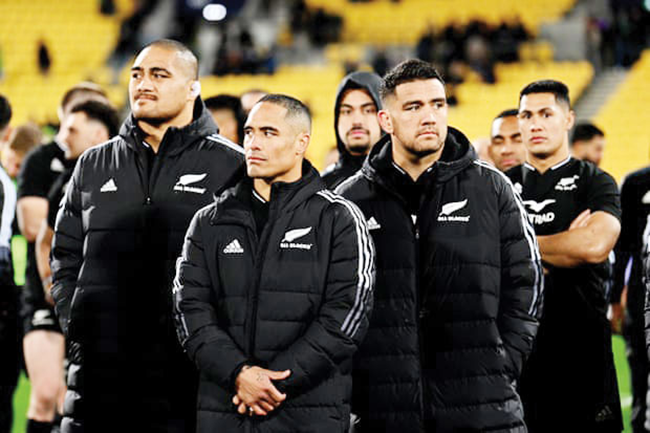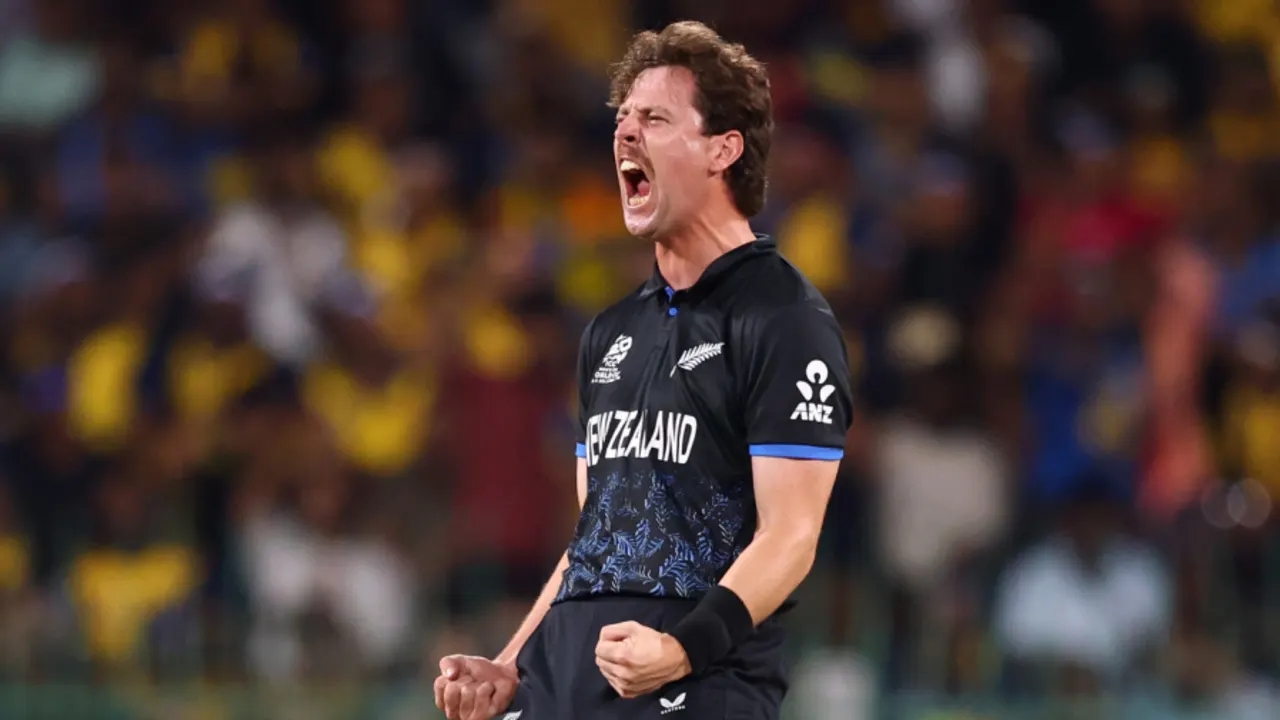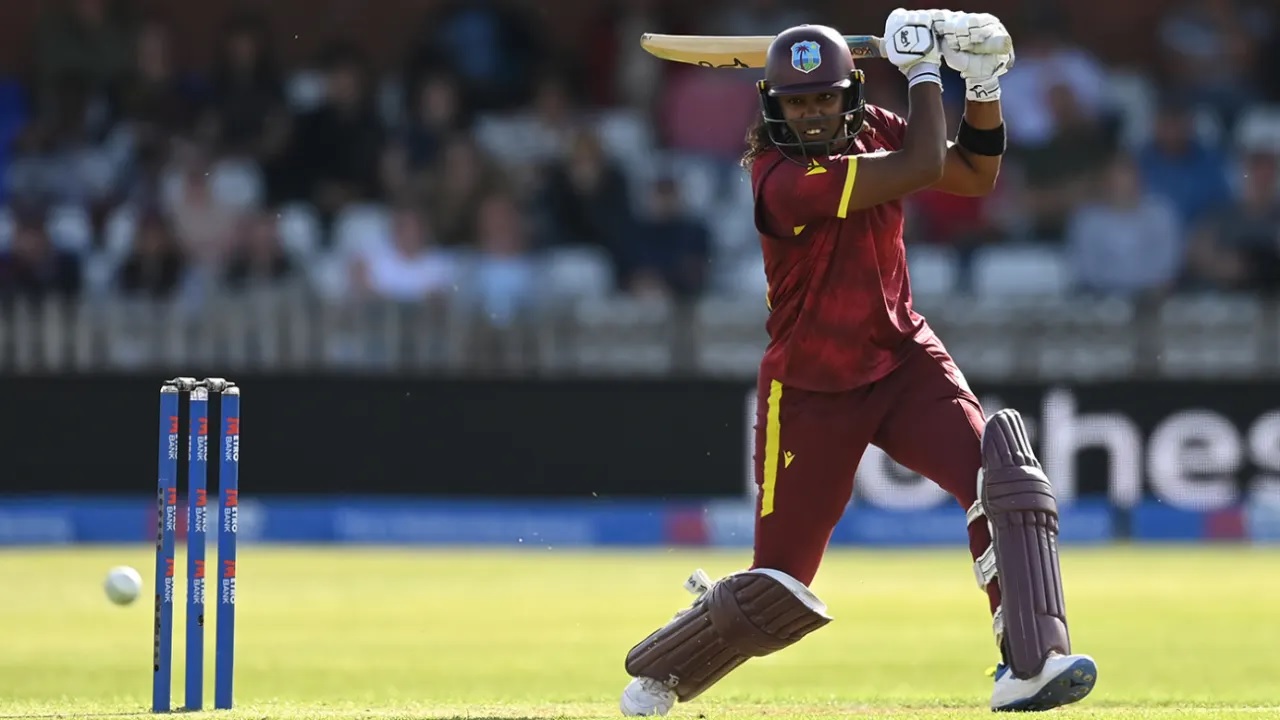Sports
The mighty All Blacks are falling

New Zealand rugby’s tipping point appears nigh. Alarmist? Maybe. Yet as the fissures deepen while the All Blacks embark on a defining South African tour, New Zealand grows increasingly impatient for signs of resuscitation of its revered rugby tradition.Two weeks ago the All Blacks ignited mass venting after losing against Ireland in Wellington – a result that consigned Ian Foster’s widely derided All Blacks to their first home series defeat in 27 years, their first ever against the Irish, and their fourth defeat in five Tests.
Cue outrage. Such a sharp plateau cuts through New Zealand’s societal and political divides to form unified condemnation.Six days of silence followed as the All Blacks and New Zealand Rugby held high-powered meetings behind closed doors. The information vacuum sparked wild speculation, with calls for everyone from the coach to the captain to be sacked.Ian Foster, the coach has survived, for now at least, despite a 66.7% win record which ranks him the worst All Blacks coach in the professional era.
In a defiant, emotional address last week Foster attempted to counterpunch the mounting red mist. Yet only by delivering an immediate transformation in two brutal Tests on the South African highveld can he secure his future.Casualties have emerged in the form of All Blacks forwards coach John Plumtree and attack mentor Brad Mooar – both shown the door a matter of months after re-signing through to the 2023 World Cup.Sacking coaches mid-tenure is a cut-throat notion far more aligned to European football than uber-conservative New Zealand rugby, reflecting the relentless public pressure and sustained demand for change.
While rugby’s rankings require Pythagoras’s theorem to fathom, the All Blacks dropping to fourth for the first time aptly depicts their struggles.For the vocal disaffected, the circumstances surrounding Foster’s accession to the All Blacks throne – on the continuity ticket after eight years as Steve Hansen’s assistant – and the team’s subsequent malaise, create one clear cause for the demise.A challenging Covid landscape has been unkind to Foster’s troubled tenure, but the now-evident erosion of the All Blacks, and that of their fear factor, can be traced back to the drawn 2017 British and Irish Lions series and the crushing World Cup semi-final defeat to England two years later.
Like climate change deniers, many New Zealand rugby fans refuse to accept a changing of the guard is possible or that deeper issues than the coach are at play.While New Zealand rugby boasts a legacy of success, the unrealistic expectations that the All Blacks win every Test were ingrained by the dominance of the near untouchable 2012-2016 team that lost twice in five years.
The All Blacks of that time mount a compelling argument for New Zealand’s best-ever team. Only now, in times of extreme frustration and calls for coaching cleanouts, are their feats truly appreciated. Their like will probably never be seen again.Further coaching changes may help improve the All Blacks’ fortunes, but that theory is too dismissive of the northern nations’ significant improvement since 2015, with France and Ireland now leading the charge.The gap at the top has closed – and there is every reason to believe it will stay that way.
From a New Zealand perspective, a total reset could be required. Projected quick fix solutions such as ushering in six-time Super Rugby-winning Crusaders coach Scott Robertson may not provide an instant cure.Written off and under siege as they confront rugby’s toughest assignment, the All Blacks could silence their doubters by pulling off upset victories against the world champion Springboks in the coming weeks.But even in that utopian scenario, New Zealand rugby’s deeper issues will not be addressed. Scratch the surface and a litany of challenges emerge.
This week Hansen launched a scathing attack that placed responsibility for a series of failures squarely at the New Zealand Rugby board’s feet, saying the relationship between the board and players was “probably the worst it’s ever been”.
Other issues include the number of teenage boys playing rugby falling at alarming rates for the past eight years – down 17% to 2018, at a time when basketball’s popularity grew 41%. This can partly be attributed to the professionalisation of schoolboy rugby, and the lack of focus on those below the elite first XVs. In Auckland alone the number of secondary school rugby teams fell from 225 to 181 between 2013 and 2018.
The decimated grassroots scene, where many clubs have folded and amalgamated, continues to have a profound effect on participation and engagement, too, while crowds and ratings for the elite game are declining.New Zealand’s talent development, particularly that of the once dominant under-20s team, has declined since 2017, before a sudden revival this season.
In the professional realm this year’s remodelled 12-team Super Rugby competition exposed a dearth of contrasting, confrontational styles. The absence of South Africa and, to a lesser extent, Argentina, leave largely homogenised contests that do not best prepare New Zealand’s players for the combative, suffocating Test arena. And while the recently signed $200m deal with US private investment firm Silver Lake offers financial security, the potential long-term pressure points of that arrangement remain unclear.As Blues coach Leon MacDonald noted earlier this year dwindling depth is another pressing concern. From America’s Major League Rugby to Japan and Europe, New Zealand’s stocks remain among the most popular to pillage.
“It is an issue,” MacDonald said. “The depth of our players is getting less and less and less. That’s something we’ve noticed it’s becoming harder and harder for us to find the players we need.”
A golden All Blacks era masked creaks that have evolved into cracks. But as the treasured pyramid head now threatens to topple, the Shaky Isles rumbles on the precipice of a reckoning with their national game.
Latest News
Maharoof expects ‘some hard decisions’ after Sri Lanka’s T20 World Cup exit

“I’m going to put it very simple: it’s hurtful, it’s painful and it’s shameful,” Farveez Mahroof, the former Sri Lanka allrounder, said, pretty much summing up the mood among cricket fans in the island after their abject failure against New Zealand on Wednesday in Colombo. That it came after being bowled out for 95 by England and meant Sri Lanka’s T 20 World Cup 2026 was over just added to the sense of dejection.
“It’s not a pitch that you can play through the line, I get it. But the way some of the batters just gifted their wickets away, apart from Pathum Nissanka’s delivery [from Matt Henry], every other dismissal was a soft dismissal, giving the wickets away, just like the England game, where all ten were soft dismissals,” Maharoof said on ESPN Cricinfo TimeOut after the match. “Continuing the same trend into another game, a must-win game, shows Sri Lanka were not up to the mark with the bat.”
Nissanka has been Sri Lanka’s best batter in the tournament, and the main man in their win over Australia, when he slammed a 52-ball 100 not out. On Wednesday, Henry produced a peach to Nissanka first ball, and “whatever hopes that Sri Lanka had just vanished”.
At the T20 World Cup, which Sri Lanka came to after losing 3-0 to England in a series at home, they beat Oman and Ireland, teams ranked lower than them, and then Australia in the group stage, but since then, it has all been downhill. Zimbabwe, England and now New Zealand have beaten Sri Lanka, and the last two have come after poor batting performances.
“It’s becoming a bad habit to have. I have been doing this analysis for seven-eight years, I keep saying the same old thing: once in a while, a good game, and our hopes are high; all of a sudden, come crashing down to the earth,” Maharoof said, referring to the Australia game. “It’s not the first time. I just hope something down the line, this has to come to an end, some hard decisions have to be made.
“I think after the next game, before the next series starts, Sri Lanka’s selectors and the think tank should really think of the future, what are the capabilities of the players, who should stick and who should not stick, and move on. I expect probably in the next couple of weeks, some hard decisions are going to be made. If not, I will be very surprised.”
Sri Lanka end their campaign with a game against Pakistan, in Pallekele on February 28.
[Cricinfo]
Sports
Matthews’ century leads West Indies to six-wicket victory

Hayley Matthew’s tenth ODI century led West Indies to a six-wicket victory in the final match of the series against Sri Lanka and gave them their first points in the new Women’s Championship cycle.
Sri Lanka had already secured the series but couldn’t clinch a whitewash as Matthews dominated: she started the match by removing opposite number Chamari Athapaththu in the first over of the contest and then compiled an 118-ball hundred, which took West Indies most of the way in their chase.
“I felt like I was in a pretty good space batting-wise and probably just [in the] first game got pretty unlucky with how I got out and then in the second match gave my own hand away,” Matthews said. “So I certainly felt like I was in a space where I wasn’t exactly being too threatened at the crease and I knew I just had to lock in and try to take it a bit deeper.”
The home side was in early trouble in St George’s against a target of 218 with Qiana Joseph and Shemaine Campbelle falling to Malki Madara to leave West Indies 12 for 2. But after taking 12 balls to find her first boundary, Matthews did not look back as she took charge of the innings, adding 124 for the third wicket with Stefanie Taylor, who moved second on the all time run scorers list in ODIs.
Matthews’ fifty came from 48 balls before she slowed a little in the second half of her innings, but the asking rate was never a threat for West Indies. She did give a chance on 70 when Nilakshika Silva was unable to hold a return catch. The ball after reaching the century, though, Matthews picked out deep midwicket but a stand of 49 between Deandra Dottin and Chinelle Henry finished the job.
Following the early loss of Athapaththu, Sri Lanka’s innings was anchored by Harshitha Samarawickrema’s 70 off 112 balls. She added 78 for the third wicket with Vishmi Gunaratne, but the visitors struggled to lift the scoring rate in the latter stages as West Indies chipped away, with Karishma Ramharack removing Gunaratne and Samarawickrama in the space of four overs.
Brief scores:
West Indies Women 218 for 4 in 46 overs (Hayley Matthews 100, Stefanie Taylor 38, Chinelle Henry 32*; Malki Madara 2-33) beat Sri Lanka Women 217 for 7 in 50 overs (Hasini Perera 27, Harshitha Samarawickrama 70, Kavish Dilhari 45*, Hayley Matthews 2-33, Karishma Ramharack 2-39) by six wickets
[Cricinfo]
Sports
Trinity take first innings honours against S. Thomas’

Pulisha Thilakarathne top scored with 89 runs and held the top order batting together as Trinity scored first innings points and took major honours in the Ranil Abeynayake Memorial Trophy cricket encounter at BRC ground on Wednesday.
Trinity took a first innings lead of over 50 runs and declared their innings with two wickets in hand to find Thomians doing better in the second essay.
Jayden Amaraweera was in the forefront of the Thomian revival in the second innings as he scored his second half century of the match. Aaron Kodituwakku missed a second half century by five runs.
For Trinity, Mahendra Abeysinghe and Dinal Fernando were the others to make contributions with over 40 runs, while Aadham Hilmy made 32.
Scores:
S. Thomas’ 189 all out in 77.4 overs
(Aaron Kodituwakku 72, Jaden Amaraweera 50, Shanil Perera 37n.o.; Kanika Anthony 5/66, Dinal Fernando 3/34) and 182 for 5 in 53 overs (Jaden Amarawera 68, Aaron Kodituwakku 45;
Chaniru Senarathne 2/44)
Trinity 54 for 1 overnight 246 for 8 decl. in 58.2 overs (Pulisha Thilakarathne 89, Mahendra Abeysinghe 44, Dinal Fernando 45, Adam Hilmy 32; Abheeth Paranawidana 4/95, Gimhan Mendis 3/41) (RF)
-

 Features4 days ago
Features4 days agoWhy does the state threaten Its people with yet another anti-terror law?
-

 Features4 days ago
Features4 days agoReconciliation, Mood of the Nation and the NPP Government
-

 Features4 days ago
Features4 days agoVictor Melder turns 90: Railwayman and bibliophile extraordinary
-

 Features3 days ago
Features3 days agoLOVEABLE BUT LETHAL: When four-legged stars remind us of a silent killer
-

 Features4 days ago
Features4 days agoVictor, the Friend of the Foreign Press
-

 Latest News6 days ago
Latest News6 days agoNew Zealand meet familiar opponents Pakistan at spin-friendly Premadasa
-

 Latest News6 days ago
Latest News6 days agoTariffs ruling is major blow to Trump’s second-term agenda
-

 Latest News6 days ago
Latest News6 days agoECB push back at Pakistan ‘shadow-ban’ reports ahead of Hundred auction













